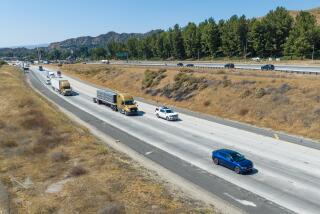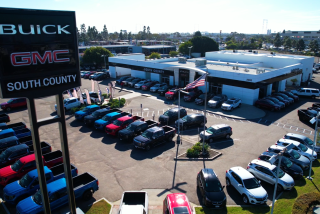Its Auto Sales Down, Nissan Offers Rebates
- Share via
DETROIT — Bonuses and rebates helped U.S. auto makers boost sales in February by more than 10% compared to a year ago, while increasingly expensive imports saw their share of the car market start to sag.
Nissan, which has had dismal sales all year, reported an overall 41.9% drop in car sales in February and Thursday joined the domestic auto companies in offering cash-back incentives.
While cash incentives and rebates have been a standby for Detroit auto makers in the last few years to prop up a weak car market, the major Japanese importers have assiduously avoided them.
But with the increasing value of the yen, Japanese auto makers have been under pressure to increase prices. With higher prices, sales have flattened and in some cases fallen. Auto sales figures for February show, in fact, that imports were 27.3% of all cars sold, down from 28.1% in February, 1987.
The drop in sales of imported light trucks has been even more dramatic.
Sales Top Forecasts
“Incentives and sales are going much stronger than people anticipated,” said Thomas F. O’Grady, an automotive analyst with Integrated Automotive Resources. “The domestic (auto manufacturers) are in a market share war. There have been very strong price increases by the imports. They don’t have immediate effects, they have long-term effects. (The domestic manufacturers are) getting some market share from the imports.”
Nissan said Thursday that its cash-back incentives, which will run from March 1 to May 3, include $700 on the Sentra, $1,000 on the Stanza and Stanza station wagon and $500 on the Hard Body Special pickup truck.
William Pauli, a spokesman for Nissan, said that they don’t see the incentives as unusual. “There are a number of automobile companies that offer cash-back incentives,” he said. “We intend to be competitive. We are confident that this will generate more customer traffic.”
In all, U.S. auto sales were up 10.6% in February compared to a year ago, the major auto manufacturers reported. That represents a seasonally adjusted annual rate of 11 million units--about 1 million units over what many auto analyst were projecting for the year.
“These are real surprising results,” said Christopher Cedergren, an auto analyst with J. D. Power & Associates, a Westlake Village automotive consulting firm. “Overall, there’s a strong sales market for cars. . . . Economic evidence strongly suggests that car sales in 1988 should be lower than in 1987.”
Cedergren said February sales were strengthened by the impending expiration date of several incentive programs by the end of the month. Many consumers rushed to buy their autos in the final days before the incentive programs ended.
“GM is extremely strong,” Cedergren acknowledged, as well. “It appears that GM is on a roll. Its unexplainable. Their older models are experiencing a resurgence in the market. All the GM bad-mouthing seems to have stopped.”
AUTO SALES Percentage changes in auto sales for the month of February are based on daily rates rather than total sales volume. There were 25 selling days in the current period and 24 in the year-ago period.
% February 1988 1987 change GM 331,917 277,956 +14.6 Ford 176,878 157,031 +8.1 Chrysler 98,819 81,009 +17.1 Honda US 27,604 27,851 -4.9 Nissan US 4,723 7,200 -37.0 VW US* 3,981 3,808 +0.4 Toyota US 3,315 2,098 +51.7 Mazda US 1,826 -- -- Domestic 649,063 556,953 +11.9 Toyota Imp. 42,187 34,713 +16.7 Nissan Imp. 24,826 41,661 -42.8 Honda Imp. 27,800 28,853 -7.5 Mazda 18,413 10,049 +75.9 Subaru 12,590 12,347 -2.1 VW Imp. 12,764 8,349 +46.8 Volvo 7,114 8,929 -23.5 Hyundai 22,536 18,656 +16.0 Mitsubishi 5,203 5,314 -6.0 Others* 70,267 48,984 +37.7 Imports* 243,700 217,855 +7.4 Total US 892,763 774,808 +10.6






